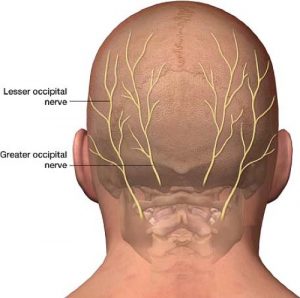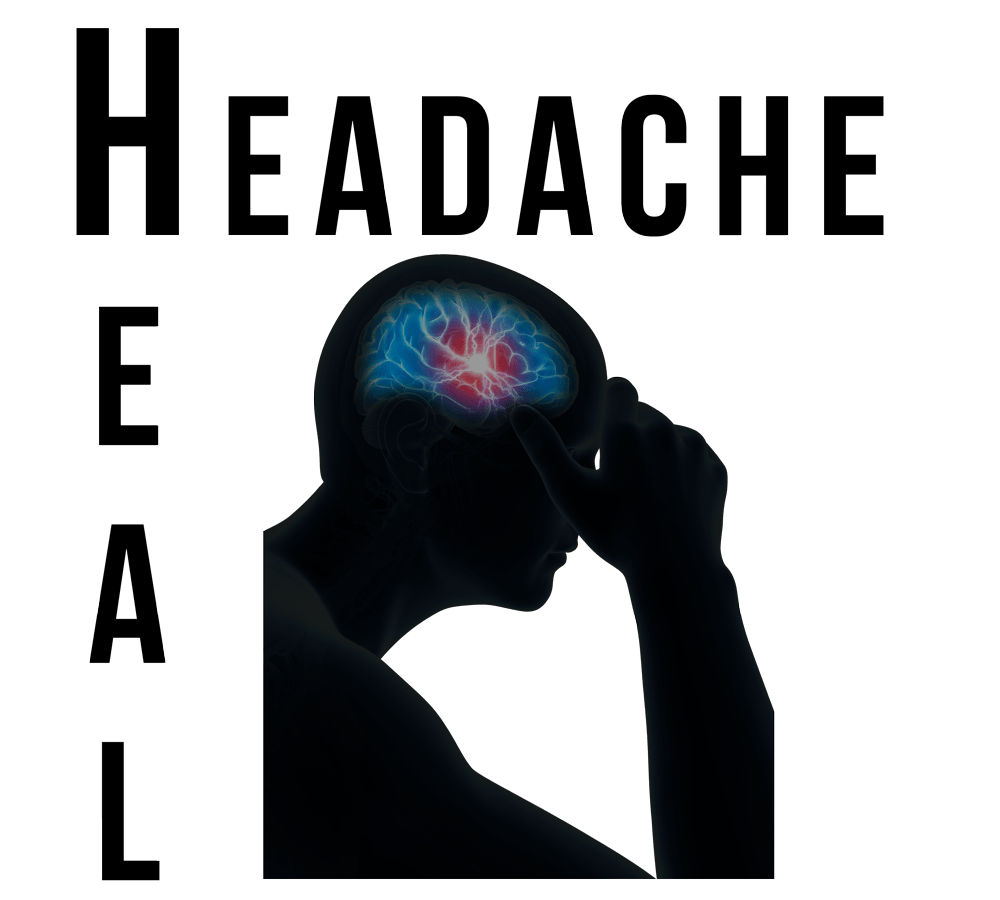Occipital Neuralgia
Facial Pain & Other Neuralgias
Occipital Neuralgia
Facial Pain & Other Neuralgias
What is occipital neuralgia?

Most of the sensation in the back and the top of the head is transmitted by the greater and lesser and occipital nerves. These two nerves run from the top of the spine and span both sides of the scalp. When these nerves become irritated or inflamed, the result can be occipital neuralgia. “Neuralgia” refers to pain in the distribution of a nerve, which in this case are these two occipital nerves. Symptoms of occipital neuralgia include:
- Pain in the distribution of the greater or lesser occipital nerves on one or both sides, with greater occipital involvement on one side as the most common presentation.
- Episodes of pain which last a few seconds to minutes
- Shooting pain may reach as far forward as the front of the head and eyes, due to complex interactions between the occipital nerves and the upper spinal cord and trigeminal nerves.
- Pain is often described as shooting, electrical and/or tingling. The scalp may become very sensitive to even light touch
- Attacks are often triggered by activities such as brushing the hair, moving the neck or resting the head on a pillow
- Occipital neuralgia is a fairly rare condition and at times, may be confused with migraine or other headaches which have a strong occipital or upper cervical component
How is occipital neuralgia diagnosed?
The diagnosis of occipital neuralgia is made by an experienced physician taking a detailed history and performing a careful physical examination. Pressure applied to the greater occipital nerve as it emerges from the spine and enters the scalp, is usually painful with this disorder and the neurologic exam is usually normal. However, your physician may order imaging studies such as an MRI of the head and/or neck, in order to exclude other conditions which may mimic occipital neuralgia. Injection of a local anesthetic along the affected nerve will provide temporary relief and help to confirm the diagnosis.
How is occipital neuralgia treated?
Conservative methods of treatment for occipital neuralgia include massage, physical therapy, anti-inflammatory medications and certain muscle relaxants, such as baclofen. Anti-epilepsy drugs (such as carbamazepine, gabapentin and pregabalin) and tricyclic antidepressants may be used as preventative medications.
Can Interventional Headache Treatment help with occipital neuralgia?
If you have had prior conservative medical care, a careful neurological examination, appropriate imaging studies and have failed to achieve relief, then Interventional Headache Treatment may be an effective way to diagnose and treat your condition. Diagnostic local anesthetic injections are used to identify the painful nerve, which can be followed by injections with cortisone. If needed, radiofrequency procedures can be used to provide even more sustained relief. This and other treatment options will be discussed as part of your initial consultation.
